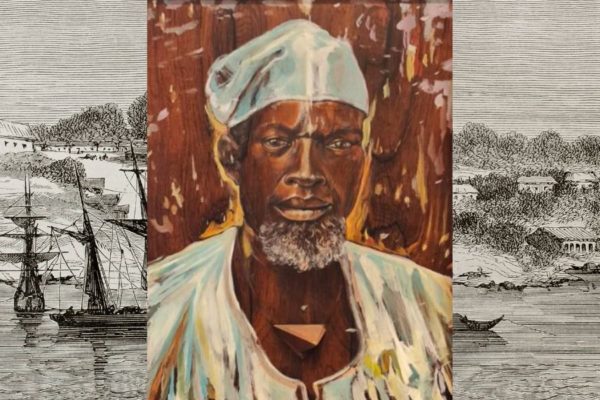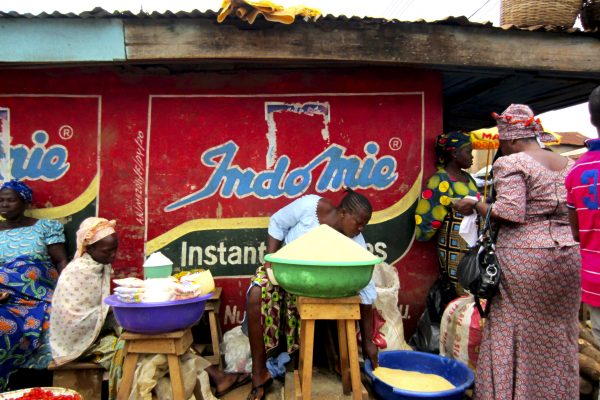Who is Sheikh Zakzaky?
Born in 1953, Sheikh Zakzaky is a 63-year-old Muslim cleric in Nigeria who studied Economics at Ahmadu Bello University from 1976-79, where he obtained a First Class Bachelor’s Degree. The university, however, refused to award him with his degree due to his association with Islam. Whilst studying at university, he played an active role in the Muslim Student Society of Nigeria and initially started out as a Secretary General for the society before proceeding to become Vice President.
Sheikh Zakzaky is the head of the Islamic Movement group in Nigeria, which has thousands of affiliates from both Sunni and Shia schools of thought. The group has successfully organised peaceful pro-Palestinian demonstrations on an annual basis for 33 years, particularly within the state of Kaduna, Nigeria.
Zakzaky has been a vocal opponent of various Nigerian governments throughout the years and has predominantly criticised leaders for failing to follow the constitution and acting as military dictators instead. Due to his outspoken condemnation of the government, he has been incarcerated for nine years in total in nine different prisons.
Notable recent events
2015 Zaria Massacre
On 12th December 2015, the Nigerian Army massacred more than 300 Muslims, including members of the Islamic Movement, in response to what they stated as an assassination attempt on Lieutenant General Tukur Buratai when his convoy passed by a makeshift roadblock near a Shia mosque. The attack, carried out by the Nigerian Army, targeted the Hussainniya Baqiyyatullah Mosque, which was the home of Sheikh Zakzaky, and lasted over two days. As a result of this attack, men, women and children were executed with excessive force, bodies were left in the streets with some piled on top of one another in an attempt to create mass graves and injured victims were burned alive.
Later the same day, members of the community gathered around Sheikh Zakzaky’s house in an attempt to deter the military from attempting to arrest or kill him. When the army arrived, they fired at the crowds of men, women and children. It was during this confrontation that the Sheikh lost three of his sons. Witnesses stated that Sheikh Zakzaky and his wife Zeenatu were arrested by the military after suffering multiple gunshot wounds. The Sheikh is currently still under arrest by the government, in a state of detention in Nigeria’s capital city. However, no official charges have been made against him.
The Human Rights Watch in Nigeria interviewed 16 witnesses and, as a result, classified this attack as wholly unjustified. Although it was reported that some members of the Muslim faith were gathering around the convoy, it was deemed that the military’s response was excessive and irresponsible in terms of who was targeted by their attacks. Reports surfaced which stated that children as young as 10 were injured in the attacks carried out by the Nigerian Army, however, no reports have concluded the extent of the injuries inflicted on the military members who were involved.
Zaria Quds Day 2014 Massacre
On Quds Day 2014, better known as the last Friday of Ramadan, the Nigerian Army again opened fire on members of the Islamic Movement who were protesting the Zionist rule in Palestine. The attack resulted in 35 members of the Islamic Movement being killed, including another three sons of the Sheikh, resulting in a total of six of his sons being killed by the government. The exact motive behind this attack has not been determined, however, it has been assumed that the protest was targeted due to Nigeria’s growing relationship with Israel.
Why is this troubling?
The events highlighted above only represent a small percentage of the attacks that have occurred on the Islamic Movement group and minority-Muslim groups in Nigeria. These attacks have been largely unprovoked and have used an excessive amount of force, which has not only killed members of the Islamic Movement, but also other innocent bystanders. The Nigerian Army has experienced no consequences as a result of the subsequent attacks, which clearly illustrates that Nigeria is being controlled through a military dictatorship and not through democratic policies. The Human Rights Watch has deemed these events as unjustifiable; however, no action has been taken to prevent the government from carrying out similar attacks again.
The attacks themselves are one issue, however another key area of concern is that the government has imprisoned Sheikh Zakzaky without any formal charges being pressed against him. Nigerian law states that, after being arrested, the individual must be presented before a court of law within one day. This did not happen for the Sheikh, alongside a lack of any official arrest warrant being issued for his detainment. Furthermore, the involvement of the Nigerian military is questionable, as arresting an individual is the main duty of the police.
The health of the Sheikh and his wife is another key issue. During the attacks the Sheikh lost sight in one of his eyes and his wife was reported as also being in a serious medical condition, however, the government have refused to acknowledge whether they have been provided with any medical attention. The government are also refusing to provide any information about their detention, including their location, to their family. This clearly highlights a growing list of Human Rights Laws that are being broken, however, it is only through the attention of the masses that something can be done to counter this.
Facts about Nigeria and its government
Nigeria is a federal republic, modelled around the US, and has been under the leadership of Muhammed Buhari from the conservative All Nigeria Peoples Party (ANPP) since 2015. Before Buhari, the Peoples Democratic Party (PDP) won every election from 1999 – 2015.
Nigeria is the largest African country with a population of approximately 173 million people, who comprise a 50/50 split between Christians and Muslims, with the majority of Muslims coming from the Sunni school of thought.
The military play a pivotal role within this country’s history, as they have regularly seized control and ruled the country for prolonged periods of time. Interestingly, Muhammed Buhari was a Major General within the Nigerian Army who became the head of state from 1983 – 85 following a military coup. The term “buharism” has been used to describe the ideologies he implemented during those years.
Nigeria has a history of human rights abuses, ranging from detention within inhumane conditions, excessive force, inadequate protection of civilians in attacks against Boko Haram and the killing of women and children due to dangerous driving through the Sambisa Forrest. However, no member of authority has ever been prosecuted for violating these laws.
Who is Muhammed Buhari?
To understand the future of Nigeria and the future for Sheikh Zakzaky it is crucial to further understand the leader of the country. As stated previously, Buhari controlled the country during a military coup in 1983 for 2 years. Whilst this was his first time in power, this was not his first military coup. Buhari was involved in the 1966 and 1975 coups, with the latter resulting in his promotion from Lieutenant Colonel to Military Governor and again, to his appointment as Governor of the North East State.
During his tenure as Head of State, Buhari introduced numerous laws and acts that went against basic human rights and attempted to restrict criticism of the government. For example, through his introduction of Decree Number 4, which was described as the most repressive law enacted in Nigeria, Buhari attempted to jail critics of the government.
After being overthrown due to a military coup in 1985 and spending time in detention, Buhari claimed to be a “converted democrat.” Whilst the mandate as to which he won the 2015 election was to defeat extremism, in his attempts to do so, he has come under similar criticism of behaving as a dictator and ignoring the law whilst persecuting members from the opposing party unjustly.
The Future?
The future is unclear for Sheikh Zakzaky. Currently, he and his wife have been unjustly detained for 10 months, with no sign of release and no updates on his health or any other information has been provided to his family members. With the country’s leader known to persecute his enemies unjustly, and to possess a blatant disregard for human rights, it is uncertain if the situation will change in the near future. The Islamic Movement has looked to bring attention to this matter and force the government to release the Sheikh by conducting numerous protests, however, these have so far proved to be unsuccessful.
It is at times such as these where it is increasingly important to have a leader that emulates the life of Imam Hussain (as). Having spent his entire life fighting against oppression, and sacrificing his status, prosperity and even family, it is a leader like Sheikh Zakzaky who will bring justice to Nigeria. Similar to how Imam Hussain sacrificed himself to save Islam, Sheikh Zakzaky is now sacrificing himself to portray the same message in a country inflicted with turmoil, which, at the very minimum, deserves our upmost support and attention.





